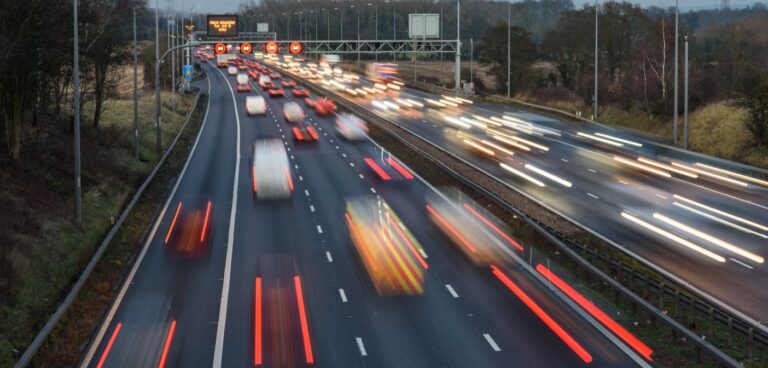A national road pricing scheme could be introduced across the UK to make up for the £35bn tax shortfall that will be created following a shift to EVs.
The Transport Select Committee said it saw “no viable alternative” to charging motorists by the mile, and urged the government to develop a replacement for fuel duty.
Telematic technology would be introduced under news plans, which would charge drivers according to distance travelled, vehicle type and the level of congestion. The MPs stressed that this approach would be “revenue neutral” with the majority of motorists paying the same, or less, than they do currently.
Additionally, the committee recommended that the government take into account the impact on vulnerable groups, as well as those living in rural areas. It suggested that data captured be subject to “rigorous governance and oversight” to protect privacy.
A further push towards active travel and using public transport will also be fundament, the committee added. With EV drivers also charged to help maintain the roads.
Committee chair Huw Merriman said it was “time for an honest conversation on motoring taxes” with the uptake of zero-emission vehicles ahead of official government forecasts”.
He added that the public would support a scheme despite previous opposition: “It’s important to emphasise that motorists won’t pay more. The difference between now and then is that the revenue – for roads, schools and hospitals – is ticking down to zero, unless we put 5p on to income tax. This issue can’t be dodged. We have to change policy.”
Advocacy group Campaign for Better Transport welcomed the report, Silviya Barrett, head of policy, said: “The government needs to start an open, honest conversation about reforms to motoring taxation, and quickly, because the status quo can’t continue. We welcome this report, which we hope will start this conversation happening in earnest.
“Road pricing, based on distance travelled and how polluting a vehicle is, can be a fairer system for everyone. It can reduce congestion, air pollution and carbon emissions and encourage a shift to greener modes where possible.”
The report also received support from public transport operator Go-Ahead. Its customer and commercial director, Mark Anderson, added: “For an effective transition, we want local authorities to bring forward schemes for urban charging based on both congestion and emission.
“As the benefits of cleaner air, reduced emissions, less congestion and more attractive places emerge, we can build more support for changing the way we allocate costs to road users”.





